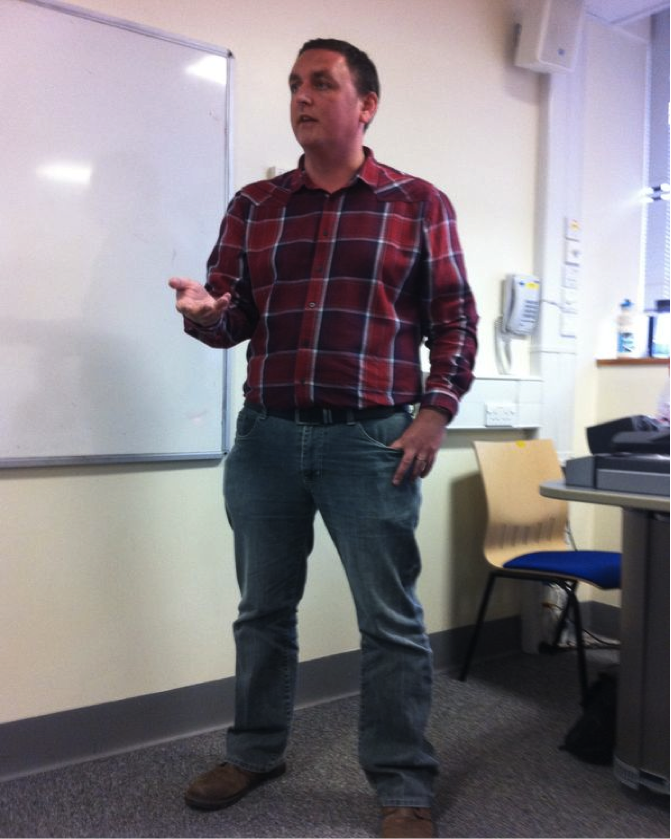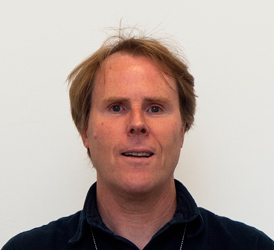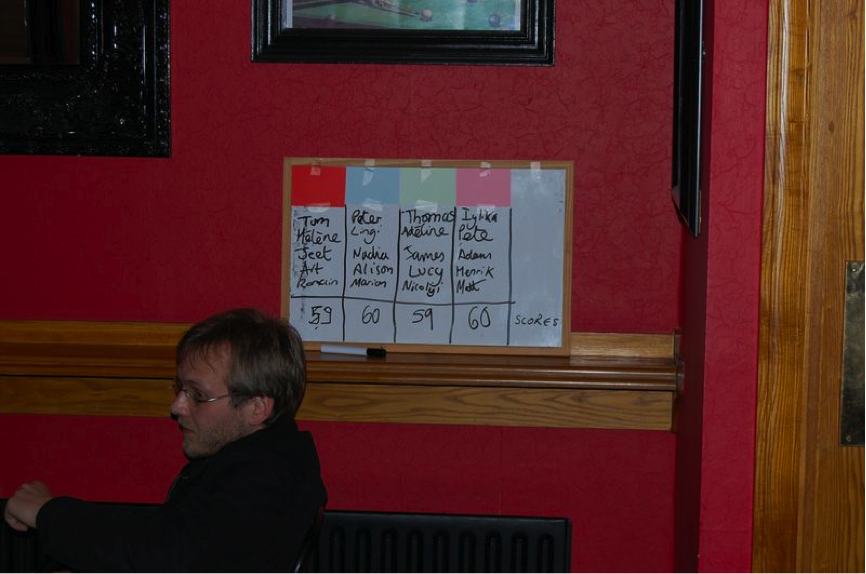By the IPA committee
On Thursday 30th January for the 4th Science Lives Seminar the ICaMB Postdoc Association (IPA) decided to delve into what it is really like to work in the Biotech industry, by hosting Dr Keith Foster from Syntaxin Ltd (Oxford, UK). For many of us Postdocs, the Biotech Industry is an unexplored entity…so how and why did Keith Foster make the transition from Postdoc to a Biotech company co-founder? And, what advice would he give Postdocs thinking of making the same leap?
Dr Foster’s talk started by illustrating his personal experience; he obtained a PhD in biological sciences in London then set his sights on a getting a post-doc position. He explained that he had first thought he would head to the bright lights of the USA for this but as his wife’s dentistry qualifications were not recognised over there, the couple moved to Nottingham to pursue their respective careers. At this point Keith really wanted to pursue a long and successful academic career and said he couldn’t imagine leaving academia.
However, he soon realised that you can never have a career plan set-in-stone as within the first couple of years of his post-doc, Keith and his wife found out they were expecting their first child. He recalled this period as a wake-up call, like an alarm telling him he should get what he considered a “real job”, meaning he wanted a stable, and hopefully permanent job to support his growing family. He said he quickly realised that in a field as dynamic as science you not only have to evolve and make career moves for personal circumstances, but also, because the world of science is ever changing, we never know what to expect around the next corner!
So, from Nottingham, Keith made his big move to industry as a Senior Scientist, the company being SmithKline (before it became GSK). Much to his surprise in his new job, he found that he could still put to use his “passion for science” at the bench and really got a thrill from the drug development and translational aspects of the projects that were new to him. Early on Keith started working on the protein, Botulinum neurotoxin, which he says he “fell in love” with and this protein remains his passion to this day with Keith recently having opened his own company based on it 20 years or so later, Syntaxin Ltd.
 Like many of our PIs, being the big boss at Syntaxin Ltd means that Keith does not himself spend time at the bench, but he does insist that any Postdoc going into a company as a Senior Scientist would have to do lots of bench work, making what an academic postdoc and an industrial senior scientist do on a daily basis “very similar”. We should however expect a pay rise! Nice!
Like many of our PIs, being the big boss at Syntaxin Ltd means that Keith does not himself spend time at the bench, but he does insist that any Postdoc going into a company as a Senior Scientist would have to do lots of bench work, making what an academic postdoc and an industrial senior scientist do on a daily basis “very similar”. We should however expect a pay rise! Nice!
 Keith Foster’s company was recently bought by a French company (IPSEN). This is where one of his biggest pieces of advice came from… always leave on good terms, and try not to make any enemies! It turns out that IPSEN actually made Keith redundant earlier on in his industrial career. However, Keith moved on, working at a handful of other companies on his way, but couldn’t believe it when he managed to shake hands with IPSEN over a multi-million dollar deal for his company all those years later! A real lesson in the importance of networking and maintaining those contacts!
Keith Foster’s company was recently bought by a French company (IPSEN). This is where one of his biggest pieces of advice came from… always leave on good terms, and try not to make any enemies! It turns out that IPSEN actually made Keith redundant earlier on in his industrial career. However, Keith moved on, working at a handful of other companies on his way, but couldn’t believe it when he managed to shake hands with IPSEN over a multi-million dollar deal for his company all those years later! A real lesson in the importance of networking and maintaining those contacts!
Another point that Keith highlighted was that Biotech or the pharmaceutical industry may not be the holy grail that many PhD students or post-docs think it is…. he posed the question is there really more job stability there these days? In academia we have fixed two or three year contracts, but industry is also highly competitive and money is hard to come by, with some firms choosing to move away from the UK and making redundancies.
To wrap this seminar up, like all our Science Lives Seminar speakers, we asked him to mention how he managed to handle a personal life and successful research career in parallel. Being a father of 4, and now a grandfather of 5, he obviously didn’t spend all of his time working. He did say however “my wife laughed when she read this question”. They obviously would not have both given the same answer!
After the seminar there was the usual informal session for post-docs to ask questions over a glass of wine or a beer, and after the IPA committee enjoyed a friendly and filling meal with Keith at the Broad Chare.
The IPA is in the process of organising our next social event, updates will follow by email and on the website. Look out! If you would like to become involved with the IPA and help organise future events, please get in touch!
IPA Committee
IPA is run by Postdocs, for Postdocs. Get involved!
IPA page on the ICAMB website: http://www.ncl.ac.uk/camb/research/postdoc/association/
IPA Facebook page: https://www.facebook.com/groups/462376430446559
Institute for Cellular and Molecular Biosciences: http://www.ncl.ac.uk/camb/







